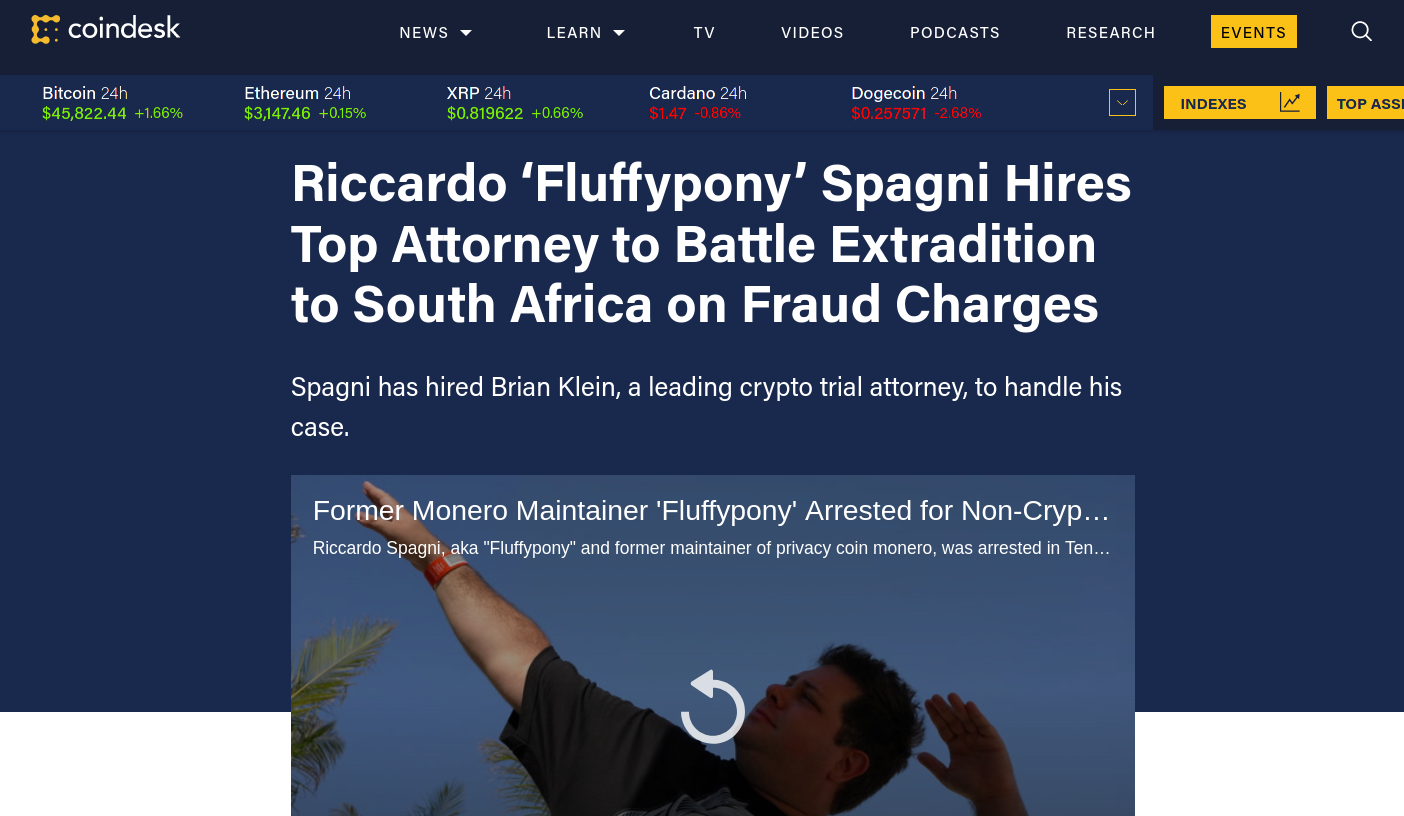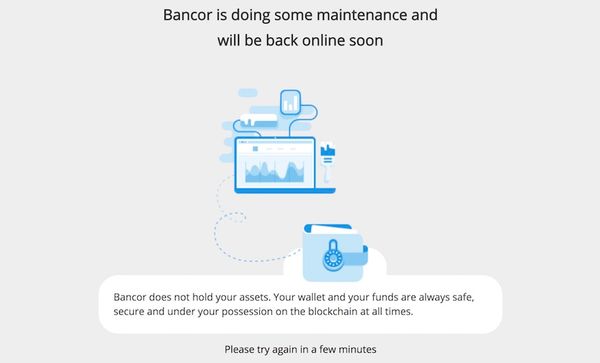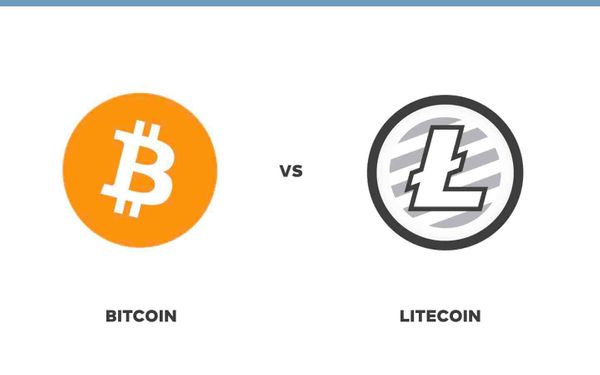Breaking Down the Extradition Order and International Criminal Proceedings Against Monero Founder Riccardo Spagni ("Fluffypony")
Monero
Aug 09, 2021
Some (somewhat) unexpected news 'leaked' out into the crypto space about a week ago (approx. July 29th/30th, 2021) revealing that Riccardo Spagni, the "lead maintainer" and "founder" of Monero had been arrested by U.S. Marshals in the continental United States at the behest of the South African government, whom submitted the extradition request for Spagni earlier this year on April 20th, 2021 to face criminal proceedings initiated against him for allegedly defrauding his former employer out of more than $100,000 via fraud, embezzlement, and forgery (among other things).
The only publication that covered his initial arrest with some level of objectivity would be 'Bitcoin(.)com' (or enough 'objectivity' to where we can parse out what actually happened w/o being predisposed to assume that the claims being made against Spagni are wholly baseless and unfounded [a conclusion that objective information + court filings seems to strongly contradict])
Here's the link to their news story - https://news.bitcoin.com/monero-developer-arrested-in-us-on-fraud-charges-at-request-of-south-african-government/
The article correctly reports that:
- "The U.S. government filed a Memorandum of Extradition Law and Request for Detention Pending Extradition Proceedings for Riccardo Paolo Spagni with a district court in Tennessee on July 21." (the link included in the article is to this court filing (linked in the next section & embedded within this report for convenience in case you don't want to waste time opening a new tab to navigate there; feel free to download at your leisure for personal reading)
Without wasting any time, let's just dig into the information and facts presentd in the actual court filing itself.
Digging into the Court Paperwork
"again, the link to that paperwork can be found here - https://storage.courtlistener.com/recap/gov.uscourts.tnmd.87126/gov.uscourts.tnmd.87126.3.0_1.pdf
"I also have that document embedded below for convenience as well (see below):
Background
In this section, it is made clear that, "The Government of South Africa seeks Spagni's provisional arrest with a view toward his extradition to stand trial for fraud." (not good!)
Also, "On July 20, 2021, this Court issued a warrant to arrest Spagni for the aforementioned offense."
The rest of this introductory section just goes on to explain that the United States has a cooperating relationship with South Africa that includes a treaty between the two of them stipulating rules / procedures for how extradition requests are to be handled.
Alleged Facts of the Case
- "SPAGNI was employed by Cape Cookies CC from October 1, 2009, to June 8, 2011 as its IT Manager."
- When he was an employee for this company, he intercepted multiple invoices from a hardware provider for the company he worked for.
- After intercepting these invoices, Spagni illegally altered these documents so that the invoices would have his banking information (rather than that of the hardware provider themselves)
- Spagni also upcharged his company on these invoices as well (so let's say the invoice was originally for $10k, he would mark up the price to $15k or something).
- Once Spagni received the payment, he would forward the fair portion that the hardware vendor was charging (original amount), then keep the difference (from his mark-up) in his bank account - effectively pocketing the difference.
The South African government claims that they have all of the financial transactions, relevant records, times, invoice documents etc. ; so from the outset, this is likely a major uphill fight for Spagni.
Specifically, it is stated that:
- "The investigation revealed that the invoices did not contain the true bank account of 'Ensync' [the company whose invoices Spagni illegally forged] but, rather, a bank account opened and controlled by SPAGNI." (yikes)
- "The investigation further revealed that Ensync's actual invoices for the goods and services supplied, to a lesser amount, had already been paid subsequent to the payment Cape Cookies made for SPAGNI's forged invoices."
- "SPAGNI also generated false invoices purporting to be from three different suppliers of information technology goods and services."
- "The investigation revealed that these were fictitious entities, finding that no such company names, registration numbers, addresses, or VAT numbers existed."
- "The bank account numbers provided with these false invoices were under the name and control of SPAGNI"
- "SPAGNI submitted these fabricated invoices to Cape Cookies as true and proper documents."
- "In relying on SPAGNI's misrepresentatikons, Cape Cookies paid each invoice by means of electronic funds transfer into bank accounts SPAGNI controlled."
This all sounds pretty fucking bad, objectively speaking - but let's see if we can try to muster up any pity understanding for this piece of shit conflicted, confused individual that likely showed his true colors here had a lapse of judgment at a more fragile point in his life, leading him to borderline rape this company defraud his former employers.
The killer here out of all of what is stated in this portion of the court documents is this statement: "The evidence indicating that SPAGNI engaged in these frauds consists of witness statements and bank records."
Yikes.
This seems to contradict what CoinDesk and others have been telling us about Spagni since word of his arrest by the United States federal government was leaked out to the general public.
CoinDesk Disinformation Campaign
In an article published on CoinDesk on August 3rd, 2021, titled, "Riccardo 'Fluffypony' Spagni Hires Top Attorney to Battle Extradition to South Africa on Fraud Charges", there are various affirmative arguments that are made on Spagni's behalf.

And, genuinely, since we do not actually know what happened beyond the claims that the entire South African government has made against Spagni, we cannot necessarily adjudicate his innocense or guilt in this situation.
However, the court filing that we were just looking at made it abundantly clear that this is not something that extradition hearings tend to look at. In fact, the purpose of an extradition request is for one nation to ask another (whom they work in concert with), to ensure that an individiual located within their domain is sufficiently detained so that they may be later transpored to the requesting nation to stand trial and answer to the allegations that have been made against them.
Thus, this is more so a process of formality as well as international cooperation than a tribunal.
These facts notwithstanding for CoinDesk and Spagni, it appears that they're either convinced that this is not how the process works (for some reason), or they're determined to convince others that this is not how the process works (perhaps to save face for Spagni).
Digging into the Article (Slightly)
We won't waste too much time here since this type of slanted, incomplete journalism tends to be par for course for CoinDesk (among most other crypto 'publications'), but since there are no other legitimate outlets that have published substantive information about Riccardo Spagnio's situation, its necessary for us to dissect the claims made (or relayed) by CoinDesk related to Spagni's case so that we can "clear the smoke" before delving further into the facts of his situation (via 'close read' of the actual court filing & established jurisprudence in the U.S. pertaining to these types of proceedings vs. lay opinions & unsubstantiated characterizations coupled with defenses in support of Spagni).
Specifically, the article states, "According to court documents, Spagni is being held without bond pending his extradition hearing." The article goes on further to state, "Klein [Spagni's attorney] who has previously represented big-name crypto clients including Erik Voorhees [he lost to the SEC] and Charlie Shrem [also lost his case and ended up doing over a year in the Feds in that incident], has filed a motion to allow Spagni to be released from custody on bail until his extradition hearing."
The chances that Spagni will be released, for any reason or circumstance, is exceedingly low (almost zero). We'll explain why in the next section.
Court Documents Make it Clear That Spagni's Extradition is Already a Done Deal
The court documents outline several realities of extradition hearings in the pages following the detailed allegations against Spagni that we previously covered.
Specifically, it is noted that, "Extradition is primarily an executive function with a specially defined role for the Court, which statute authorizes to hold a hearing at which it determines whether to certify to the Secret of State that the evidence the requesting country has provided is 'sufficient to sustain the charge'."
From this point onward, it is noted just how low the threshold is that must be met by requesting countries to have their request executed successfully. The paperwork goes on to state that, "At the extradition hearing, the Court's role is limited to considering the requesting country's evidence and determining whether the legal requirements for certification of extraditability - as defined in the applicable extradition treaty, statutes, and case law - have been established."
Below are a list of the following (only) elements that must be met to meet that "certification of extraditability" we were just mentioning above (taken verbatim from Spagni's court filing):
- "The judicial officer is authorized to conduct the extradition proceeding" (i.e., this hearing will take place in an American court of some sort ; check)
- "The Court has jurisdiction over the fugitive" (Since Spagni was arrested in the United States, this burden has been met as well; check)
- "The applicable extradition treat is in full force and effect" (As far as we know the treaty that was signed between the United States and South Africa remains in full effect to this very moment in time as this is being written; check)
- "The treaty covers the offenses for which extradition is requested." (Theft, bribery, forgery and other financial crimes of that nature happen to be prosecutable offenses in the United States as well; check)
- "Probably cause exists as to each offense for which extradition is requested." (This one is a bit more nuanced, because this invokes the reminiscence of U.S. jurisprudence, but we must remember - there is no adjudication here, the treaty between the U.S. and South Africa means that they're essentially going to take S.A. on their word that the claims they've made against Spagni are wholly accurate)
As it pertains to that 'probable cause', the Court paperwork provides further clarification later on in its assertion that, "A requesting country need not establish that its crimes are identical to ours" and that, "The Court should construe liberally the applicable extradition treaty in order to effectuate its purpose, namely, the surrender of fugitives to the requesting country." Going even further, its noted that, "Accordingly, because extradition treats should be 'interpreted with a view to fulfill our just obligations to other powers', the Court should 'approach challenges to extradition with a view towards finding the offenses within the treaty'."
"Bail" is Essentially a 'No-Go' Out of the Gate
To reiterate the statement made in the CoinDesk article cited above, it is claimed that the motion Spagni's attorney filed with the court "Claims that the U.S. government has 'misstated both the facts and the applicable law in this matter'", which is curious when considering that the U.S. courts have not actually rendered any adjudication on this extradition case at this very point in time; the public court document that we've been examining just reiterates the claims that were made against Spagni by the South African government (thus, there are no claims / characterizations / allegations / narratives etc., being posited by the courts or any other facet of this process or the United States justice system against Spagni here - a fact that's reiterated countless times in the court filing).
Leaving the aforementioned contradictions to the side, CoinDesk purports that this motion was filed by Spagni's counsel on his behalf with the ultimate goal of "[allowing] Spagni to be released from custody on bail until his extradition hearing."
In the next section, we're going to cover why this request has a 0% chance of being successful (on any level).
Court Document Specifies the Impracticality of Granting Bail to Anyone Up For an Extradition Hearing
Under section 'II' (pg. 12 of the document), it is explicitly stated, "Just as extradition hearings follow unique procedures, determining whether to release a fugitive on bail is also 'sui generis' [legal term; Latin]."
Critically, the filing goes on to iterate plainly, "The federal statutes governing extradition in the United States do not provide for bail", stating, "The Bail Reform Act does not apply because, as explained above, an extradition proceeding is not a criminal case" and that, "Rather, case law provides that bail should be granted in an extradition proceeding 'only in the most pressing circumstances, and when the requirements of justice are absolutely peremptory'."
If the above statements did not make U.S. jurisprudence regarding the granting of bail for detainees in these situations clear enough, there are further references to case law (including Supreme Court precedent), that notes, "Any release of a detainee awaiting extradition is largely antithetical to the entire process", within a section where it notes that, "The Supreme Court established this presumption against bail in 'Write v. Henkel', explaining that when a foreign government makes a proper request pursuant to a valid extradition treaty [like South Africa has here], the United States is obligated to deliver the fugitive after he or she is apprehended."
Specific to Spagni's case, it is stated, "When, as here, a requesting country meets the conditions of the Treaty, the United States has an 'overriding interest in complying with its treaty obligations' to deliver the fugitive", under the logic that, "It is important that the United States be regarded in the international community as a country that honors its agreements in order to be in a position to demand that other nations meet their reciprocal obligations to the United States. Such reciprocity would be defeated if a fugitive flees after being released on a bond."
It is also assumed that anyone that is up for extradition with reasonable financial means at their disposal has an inherent 'incentive and ability to flee' and must therefore be considered a "flight risk" for that reason alone (remember this is not a normal criminal / civil proceeding in the United States, so many of the constitutional protections, privileges, etc., that would apply for things such as 'Rules of Evidence' [among other things] are suspended in this context.
With regards to the "special circumstances" mentioned earlier, the court filing makes it clear that said 'circumstances' must be of the most extraordinary nature.
1. In essence, unless South Africa undergoes some sort of brutal quo that entirely devolves all governance, social norms and normal functioning of its society or it declares war on the United States...its likely that Spagni's case will continue to fall well below the threshold for what the court would ever consider to be 'special circumstances' on his behalf.
Other Objective Facts in This Situation Make Any Argument Proferred by Spagni Even Less Likely to Succeed
Reading between the lines (and within explicit statements) made in the court filings, it is clear that:
- Riccardo Spagni is not a U.S. citizen; which essentially makes his case akin to one where a suspected "illegal immigrant" has been arrested, pending extradition proceedings; the only difference between that situation and this one is that the extradition would be occurring here at the behest of another nation rather than suspicion that one has been residing within the continental United States in a manner contrary to U.S. citizenship, immigration, and customs laws.
- It is stated that Spagni was arrested during a "fuel restop" for a private flight that he chartered from NYC straight to Mexico (for some reason) ; a pessimistic observer could consider this, in itself to be Spagni's best attempt to evade prosecution / detention by U.S. authorities (keep in mind that the extradition request was submitted back in April 2021, but Spagni was not actually arrested until July - so its likely that he knew about these proceedings pending against him well in advance of the private jet he attempted to charter directly from New York City to Mexico.*
- The allegations against Spagni are that he committed fraud of some sort against his former employer. Thus, the allegations are 'criminal' in nature. That's important to note because this reality severely restricts any and all likelihood that there will be any level of intervention on Spagni's behalf. Such motivation would likely be given in a case like 'Meng Wanzhou', the CEO of Huawei whom was arrested in Canada in 2018 at the behest of the United States. As a Chinese national, this was a VERY politically charged arrest that had the potential to create a metldown in international relations between two world powers. In that case, yes, Meng was granted the privilege of being on 'house arrest' (versus being confined to a detention center like any other detainee facing Spagni's proceedings). Unfortunately for Spagni, his case comes nowhere close to meeting this bar - so, there's no real 'political' out for him here. There's no benefit to be had for the U.S. in releasing him or bending normal rules & procedures here.
Spagni's Fate Likely Sealed
Unless we're to assume that the information contained in the court filing submitted in support of Spagni's extradition is unequivocally false, then it appears he has one hell of an uphill mountain to climb if he expects to obtain his freedom again at any point in the near future.
Anything is possible, of course, and perhaps there are material facts about the case / allegations against Riccardo that exonerate him in some way.
But as it stands at this very second, it would be wishful thinking to expect Spagni to see the outside of a cell at any point in the next 5-10 years (at least).
Tags
- Monero
- monero fraud
- Blockchain Analysis
- Monero Analysis
- Fluffypony Arrested
- Spagni extradition
- extradition
- crypto fraud
- monero privacy
- monero blockchain private
- monero fluffypony
- ring singatures spagni
- ensync
- cookies spagni
- south africa spagni
- south africa extradite fluffypony
- founder monero arrested
- monero maintainer south africa
- south africa spagni arrest
- private jet spagni
Subscribe to our newsletter
Get the latest posts delivered right to your inbox.
cryptomedication
Happy to serve and help wherever I'm needed in the blockchain space. #Education #EthicalContent #BringingLibretotheForefront


 Formed in 2009, the Archive Team (not to be confused with the archive.org Archive-It Team) is a rogue archivist collective dedicated to saving copies of rapidly dying or deleted websites for the sake of history and digital heritage. The group is 100% composed of volunteers and interested parties, and has expanded into a large amount of related projects for saving online and digital history.
Formed in 2009, the Archive Team (not to be confused with the archive.org Archive-It Team) is a rogue archivist collective dedicated to saving copies of rapidly dying or deleted websites for the sake of history and digital heritage. The group is 100% composed of volunteers and interested parties, and has expanded into a large amount of related projects for saving online and digital history.





